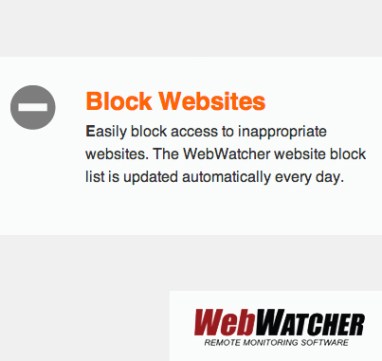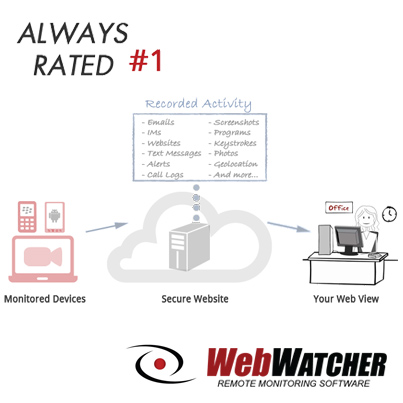Parents of today’s teenagers may remember that during their own teenage years, they had to find a pay phone or borrow someone else’s phone if they needed to call their parents for a ride home. Such a scenario would be unimaginable to today’s teen, who is usually equipped with their own smartphone.
Most of today’s teens have phones in their pockets, which means that they can easily contact you whenever they need to. That’s good for them, and it’s good for you as well. If you need to get ahold of your teenager, you can reach them no matter where they happen to be. Smartphones can improve communication between parents and teens and make their lives much more convenient.
But as useful as smartphones can be, they have a darker side as well. Teens have been known to get into trouble with their smartphones. Most parents have at least some familiarity with the potential dangers of smartphones, such as sexting, cyberbullying, apps that facilitate connections between teens and inappropriate adults, and so on.
Monitoring software that allows you to keep an eye on what your teen is doing can help you protect them, but where should you draw the line between monitoring and just plain spying on your teenager? Do you really need to read every text? Do you need to check their location with the GPS monitor every time they leave the house? Where’s the line between conscientious parenting and intrusive spying on your teenager’s private life? Here are some thoughts on important aspects of monitoring teens’ smartphone use.
Social Media Monitoring
Social media is where teens do a lot of their socializing and communicating with each other, so keeping an eye on your teen’s social media activity is a good place to start. That doesn’t mean that you need to go into their account and read all of their private messages, however. Start by making your own account and friending your child on Facebook, following them on Twitter, or otherwise connecting with them.
This will allow you to see what kinds of things your child is posting and sharing online. And if your teen uses apps on their smartphone to post on social media, then you should download and use the same apps yourself. That way, you’ll be familiar with how the apps work and be able to get a better sense of whether they’re appropriate for your teen.
You may not see anything in your teen’s social media postings that concerns you. But if you do, that’s your cue to take further action. But start by talking to your teenager about what you’ve seen. Listen to what they have to say. Talk to them about the potential ramifications of what they post online.
Teens often don’t realize that public postings can have serious effects on their lives. Point out that people like college admissions officers and potential employers are going to look at their social media pages and make judgments based on what they see there, fair or not.
Text Message Monitoring
Your teen’s text messages can reveal a lot. And text messaging is another important mode of communication for teenagers. But should you be reading your teen’s text messages? Not necessarily.
This is where parental monitoring software can really come in handy. You can check on things like who your teen is sending messages to and receiving messages from and when they’re sending messages. This can give you important information without having to actually read your teen’s individual messages.
But if you notice that your teen is communicating with someone that you don’t know, or sending messages when they’re not supposed to, like late at night when they should be asleep, that may be a sign that you need to investigate further.

It’s also a good idea to keep an eye on what kind of messages your teen is sending and receiving – it’s normal for teens to send text messages that include pictures and videos, but the picture and video messages can also be a sign that your teen is sexting.
Sexting involves sending risqué pictures and videos. Usually, these are intended to be seen only by the receiver, but the reality is that sexts often end up being shared with people who the original sender never intended to have seen them. In some cases and in some locations, sexting can even have legal ramifications. So if your teen is sending these types of messages, you need to know about it so that you can talk to them about it.
GPS Monitoring
What about monitoring your teen’s location? GPS monitoring can have a lot of useful applications that don’t have anything to do with spying on your teen’s movements. For example, if your teen loses their phone, GPS can help you locate it, saving you the cost of buying a new phone. And in an emergency situation, for example, if your teen was in a car accident and unable to call for help, GPS could help you locate them.
Of course, GPS tracking can also tell you other things. For example, checking on your teen’s location during school hours can let you know whether or not they’re skipping school. It’s also possible to go too far. Checking on your child’s location every time that they leave the house can be stifling.
By the time your child reaches their teen years, they need some freedom to move around and make their own choices without being constantly watched, as long as they haven’t proved themselves to be untrustworthy.
So what’s the answer? In most cases, your best bet is occasional check-ins. You don’t need to know your teen’s every movement, but it doesn’t hurt to check in every once in a while – especially if you have some reason to be suspicious or concerned.
When it comes to using parental monitoring software, moderation is the key. Good parental monitoring software comes with a variety of tools that you can use, but there’s no need to use all of them all of the time. Judicious use of parental monitoring tools can help you keep your teen safe and give you the information that you need to guide them without depriving them of the chance to make their own choices and learn from their own mistakes along the way.
To find out more about how parental monitoring software can work for your family, get our risk free trial.





